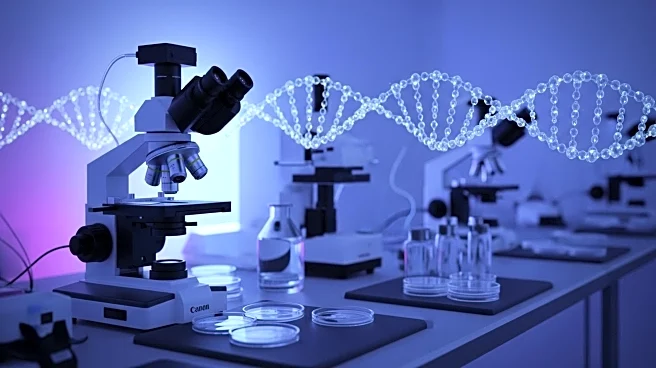What is the story about?
What's Happening?
Spatial biology is gaining traction in drug discovery, with companies like LatchBio and GlaxoSmithKline (GSK) leading advancements. LatchBio released a 25-million-cell atlas for spatial transcriptomics, the largest open-source human spatial atlas to date. GSK is utilizing Relation Therapeutics’ platform to integrate spatial and single-cell transcriptomics for target validation in fibrotic diseases and osteoarthritis. Takara Bio USA expanded into spatial biology by acquiring Curio Bioscience, enhancing its capabilities in single-cell RNA-seq technology. The field is seeing significant growth, with revenues for top public companies rising to $3.398 billion, and private companies raising over $640 million.
Why It's Important?
The expansion of spatial biology is crucial for advancing precision medicine and drug discovery. By understanding the spatial arrangement of cells and their interactions, researchers can develop more targeted therapies for complex diseases. This approach could lead to breakthroughs in treating conditions like cancer and fibrotic diseases, improving patient outcomes and reducing healthcare costs. The financial growth in the sector indicates strong investor confidence and potential for further innovation, which could accelerate the development of new treatments and diagnostics.
What's Next?
Spatial biology companies are expected to continue expanding their technologies and collaborations. GSK's partnership with Relation Therapeutics could lead to new drug targets and therapies, while Takara Bio's acquisition of Curio Bioscience may enhance its research capabilities. The ongoing development of spatial multiomics platforms and integration with AI could further revolutionize drug discovery processes. As companies continue to raise capital and expand their operations, the spatial biology field is poised for significant advancements in the coming years.
Beyond the Headlines
The growth of spatial biology highlights the increasing importance of interdisciplinary approaches in scientific research. By combining genomics, proteomics, and AI, researchers can gain deeper insights into cellular functions and disease mechanisms. This holistic approach could lead to more personalized medicine, where treatments are tailored to individual patients based on their unique biological profiles. The ethical implications of such advancements, including data privacy and access to new therapies, will need to be addressed as the field progresses.














